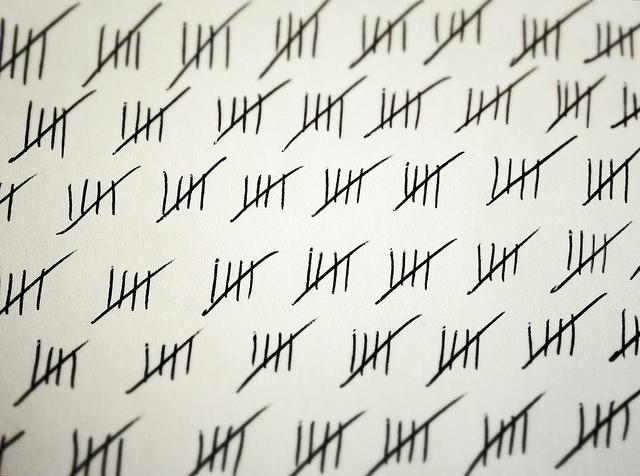
Over recent months, the International Campaign to Abolish Nuclear Weapons (ICAN) has been attempting to sign up Australian parliamentarians to a pledge of support for Australia’s signature and ratification of the nuclear ban treaty. And with the steady drumbeat of a possible showdown over a nuclear-armed North Korea playing in the background, it should have had no problems in finding more than a few true believers among the ranks of current politicians. So, just how well is ICAN doing in its pledge campaign?
As of last Friday—10 November—ICAN listed 65 pledges from Australian parliamentarians. That total comprises 22 senators and 43 members of the lower house. But remember that (on a good day) there are 76 senators and 150 MPs. So 65 out of 226 actually equates to 29%. Not a bad start, perhaps, but so far not a winning coalition.
Still, let’s look more closely at the pledgers and tease out their party affiliations. Of the 65, the great bulk—by far—come from the Australian Labor Party and the Greens. In fact, 52 of the 65 are ALP parliamentarians, and another 8 are Greens. That accounts for 60 of the 65; two from the NXT (Skye Kakoschke-Moore and Stirling Griff), one from the Liberal Party (Warren Entsch), one from the Nationals (Ken O’Dowd) and one independent (Andrew Wilkie) round out the full list.
Those 52 ALP signatories are a worrying sign of troubled times ahead: there are only 69 Labor MPs and 26 Labor senators, so 52 out of a possible 95 supports ICAN’s claim that it has secured pledges from a majority of Labor parliamentarians. And that suggests we might be about to witness a struggle for the nuclear soul of the Labor party somewhat akin to the one that unfolded in the 1980s.
If so, those in favour of signing up Australia to the nuclear ban treaty still have some work to do. For one thing, they’re under-represented on the current front bench. Among the shadow ministry, only 8 of the 22 shadow ministers have signed. That’s about 36%. The signatories are Tanya Plibersek, Katy Gallagher, Tony Burke, Jenny Macklin, Anthony Albanese, Joel Fitzgibbon, Catherine King and Julie Collins. There are some well-known names there, but none of them hold security-related portfolios. Penny Wong, Richard Marles, Amanda Rishworth, Mark Dreyfus and Shayne Neumann (respectively, shadow ministers for foreign affairs, defence, defence personnel, attorney-general, and border protection) haven’t signed.
If we broaden the definition of the shadow ministry to include the outer shadow ministry and parliamentary secretaries, the ‘pledgers’ do slightly better. Now 22 have signed out of a possible 47—about 47%. Gai Brodtmann and Mike Kelly (respectively, shadow assistant ministers for cyber security and defence personnel, and for defence industry and support) haven’t signed.
If there’s any solace to found in ICAN’s list of pledges, it comes not from the bare list itself but from the tempo of commitment, if I can call it that. Peak pledge has probably passed. Parliamentarians were signing up reasonably rapidly in August and September, but—judging from ICAN’s tweets—the tempo seems to be slowing. In short, most of those amenable to ICAN’s arguments have already signed.
True, the ALP’s probably still being buffeted by a wave of populist anti-nuclear forces similar to that besetting its British counterpart—where Jeremy Corbyn has roused the party’s anti-nuclear wing (stronger outside the parliament than inside it) to new levels of engagement. But Shorten’s no Corbyn. And ALP party hardheads must know that any decision by a future Labor government to sign the nuclear ban treaty would have an immediate impact upon the US-provided extended nuclear assurance that Australia currently enjoys—and, more broadly, upon both ANZUS and the wider bilateral relationship with Washington. Such a decision would also flow over into Australia’s relations with other US allies, many of whom—in Northeast Asia and Europe—are working hard to strengthen such assurances, not to abandon them.
Around the world, nuclear challenges to the West are increasing, not decreasing. There is—probably—a path to eventual nuclear disarmament. But, as Lewis Dunn has written, ‘the road to physical elimination runs inexorably through strategic elimination’. Nuclear weapons were built for a strategic purpose—to bring to an end the most destructive world war in history and reduce the prospects of further major-power war—and they continue to fulfil that purpose today. So we’re nowhere near strategic elimination at the moment. That means Australia’s interests are best served by working to strengthen the current global nuclear ordering project, which is based on complementary systems of deterrence and abstinence. The ban treaty doesn’t do that. Pledging support is a poor choice for our parliamentarians to make.